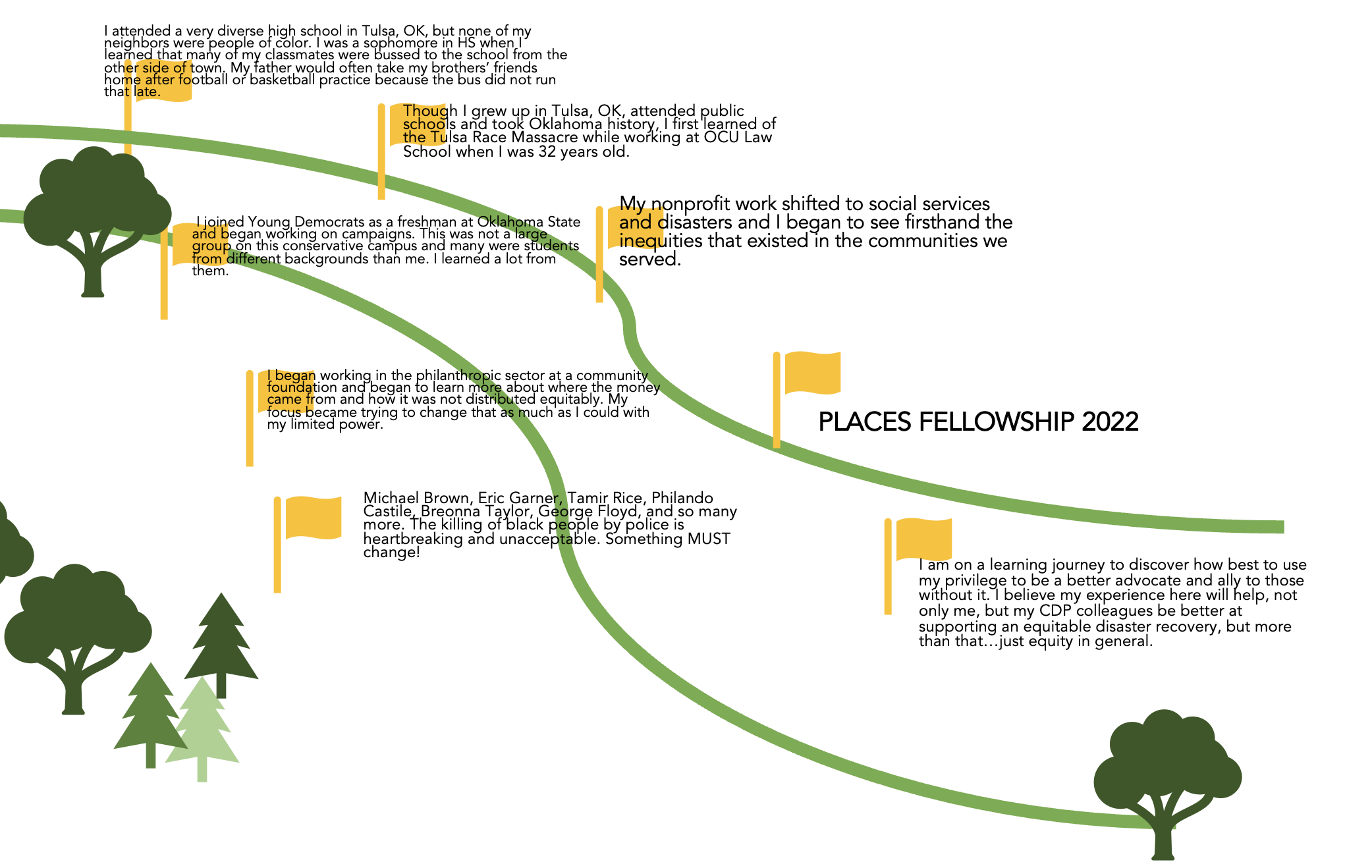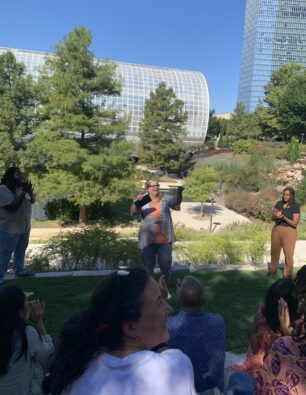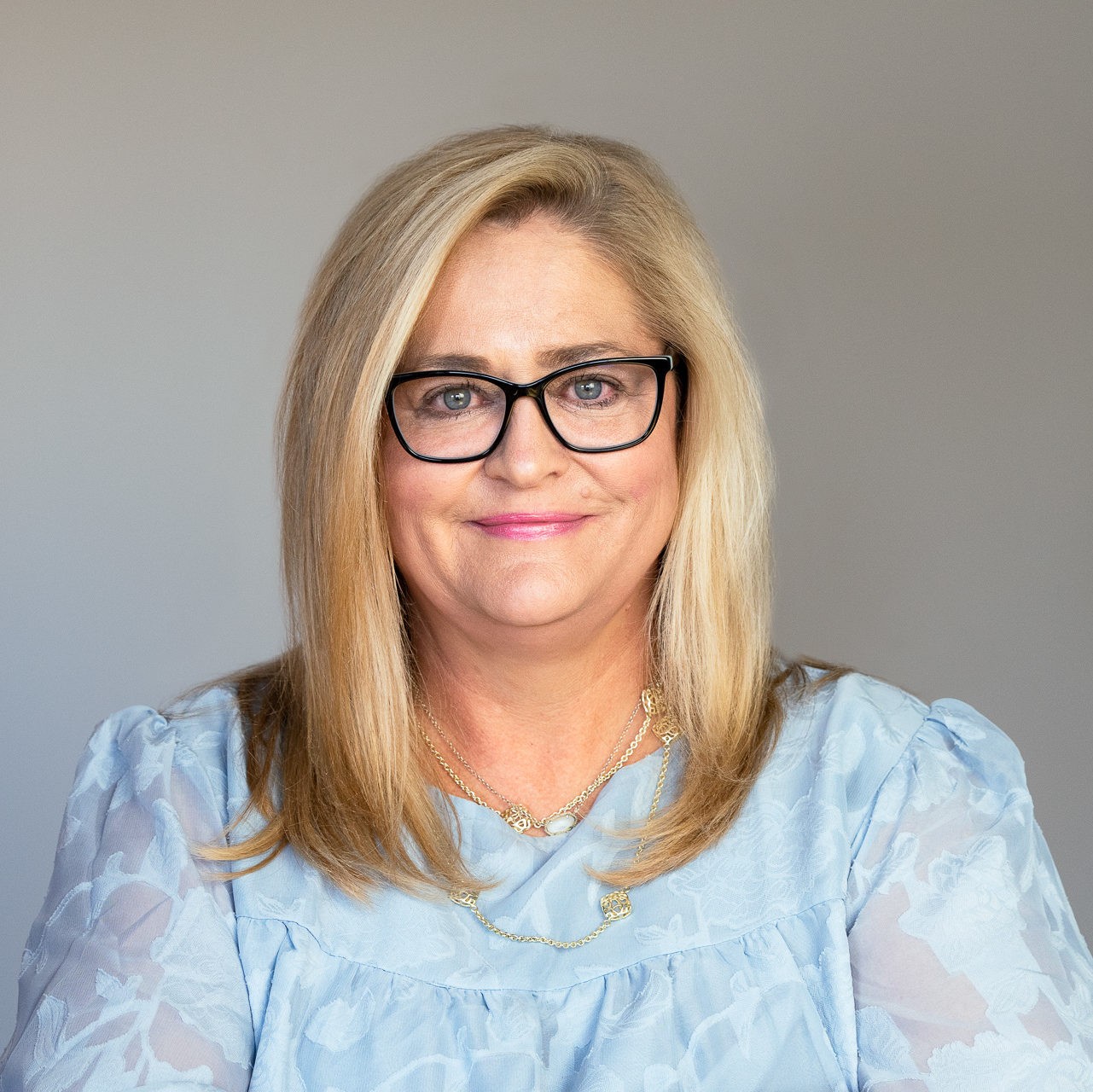A personal reflection: My PhilanTherapy journey

Editor’s Note: This blog post is part of our “Equity in Disasters” series. The series, which focuses primarily on racial equity and justice issues, also explores how these intersect with other kinds of marginalization and how historical and systemic discrimination create an uneven playing field for recovery. In this post, Sally Ray, our director of domestic funds, reflects on her experience in The Funders Network’s PLACES Fellowship.
A little more than a year ago, I decided to apply for The Funders Network’s PLACES Fellowship. PLACES stands for Professionals Learning About Community, Equity and Sustainability, and uses learning, coaching and reflections to “explore structural racism, community empowerment and equitable grantmaking practices.” I was accepted into the 2022 cohort. My experience with PLACES was full of internal and external struggles, but it was also rewarding and beneficial – not just for me but also for the Center for Disaster Philanthropy and the grantee partners I am honored to work with.
The process
The opportunity to apply came during a significant struggle for me in my journey toward becoming an anti-racist. I’m a white woman of privilege. I have spent several years of my career and within my community trying to figure out how to use my voice to change what I witness as a grantmaker supporting equitable recovery from disasters and crises.
I don’t see injustice and inequity only through my work. I’ve witnessed it in communities we serve and everywhere – it’s in the news, and it was laid bare through the pandemic and the murders of George Floyd, Breonna Taylor and so many other people of color over the past several years.
But how can a white, cis-gendered woman of privilege bring her voice to the table for change? What role can I play to support Black, Indigenous, people of color and other marginalized groups in achieving equity in the divided, racist, homophobic, discriminatory world in which we all live? I read all the books, studied and watched all the documentaries. But still, I felt like I couldn’t figure out my role. How could I share my power and empower those who suffer from the systemic inequities created by and for the philanthropic community?
And, if I’m being frank, many of my work colleagues, family members and friends played a part in silencing my voice over the years. “Sally, you’re a married, educated, white woman living in the suburbs in Texas. What in the world do you know about inequity or racism?” Or “You’re a white princess! Why are you joining these conversations?“ And even, “You have no credibility in this conversation. Step out.”
Also, other white women of privilege in my circle, in leadership spaces, who might have helped mentor me and shown me how to use my voice, were struggling as much or more than I was and fed my insecurity instead of helping allay my fears in joining the conversation. In other words, my fellow white women were a huge disappointment and were not a good source of support in this struggle. (Sorry, not sorry, gals. Do better.) I had to find other sources for mentorship, guidance and help along my journey.
So, I pushed back my fears, wrote out my application for the PLACES Fellowship, filmed the video required to go along with the application and hit “submit.”
The experience
The 2022 PLACES Cohort started our time with a Zoom meeting where we all shared our racial equity journey map (above). This map helped me realize that I had been on this “equity journey” most of my life. Though I probably couldn’t have applied a name to what I saw and witnessed so many years ago, I knew it wasn’t right and wanted to help change it. It was clear that I was about to learn some profound truth from this 2022 cohort full of thoughtful, credible, creative and diverse humans from across the country. I was intimidated and excited. What a gift and, yes, a privilege!
At our first gathering in Vermont, I was very nervous and worried my voice wouldn’t be credible again. I told myself to listen and learn and find where my voice belongs. I learned a lot from watching white people in presentations to our group TRY to do the right thing and make a mess of it at that gathering. I also learned from the PLACES cohort’s responses to these presentations how I could improve and bring credibility to the conversation.
And at our second in-person gathering in Oklahoma City (OKC), a community where I’ve spent most of my adult life and which I love, the cohort helped me recognize my community’s flaws, understand them and see how I can help others see and try to fix them. Or at least help others begin their journeys to do something about them.

While we were in OKC, with the encouragement of my fellow cohort members, I also began to find my voice. And I started bringing my voice back to other spaces in my life with confidence, strength and much less trepidation. Sally is getting loud to drown out racism and oppression and is not afraid to flip a figurative table when people refuse to listen or change.
My PhilanTherapy
But then…
I was getting tired of yelling and flipping tables with no actual results.
No. It was a bit more than that. I was exhausted. And I knew in my mind that if I was this tired, then there was no way I could even imagine how deep-in-their-souls-tired all the Black people, brown people, Indigenous people, other people of color, disabled people, LGBTQIA+ people were and are. It’s their very lives they’re fighting for and have been fighting for over centuries. I want to fight with them, but I also wanted to dive back into my cocoon of white privilege and say it was not my fight.
I felt exhausted after a week of disappointing elections in my home states of Texas and Oklahoma, where white women failed us yet again. How can white women continue to act against their own self-interests time and again? How can they continue to accept – no, not just accept, CONDONE and celebrate – sexism, misogyny, racism and discrimination? But a part of me gets it, too. They want to stay in their cocoon of white privilege, where they feel safe. And not so exhausted.
I felt this after a week of disappointment in our systems. Disappointment in philanthropy and, yes, disappointment in the organization where I work and have put my soul into for the past five years.
But then I remembered what I learned through PLACES from my fellow cohort members. I took a deep cleansing breath and vowed to keep fighting because who better to tell white women that they’re full of it than another white woman? Maybe, someday, they’ll listen, especially as we increase our forces in this fight and learn from those who’ve been in it for years.
My PLACES cohort small group, Team Earth, met on Zoom between our in-person, full cohort meetings. During one of those meetings, one of our group members asked us, “What’s bringing you joy today?” She quickly turned our focus to something positive. We all managed to find something that brought us joy, and I loved hearing about others’ joyfulness. We then transitioned to some struggles we all were having trying to align our values around equity with our philanthropy work. My friends gave me some honest feedback about what I’m facing. And I left that Zoom call feeling a lot better than before it.
My son happened to be visiting for lunch that same day. I shared my experience with the small group and other moments from my PLACES journey with him. And he said something rather profound: “Sounds like you’re getting a little PhilanTherapy.” And that’s it. That’s precisely what I’ve gotten from my PLACES experience. My fellow cohort members are my PhilanTherapists. And as with all therapy, it can be hard to face demons. I’m in a struggle right now with those demons. I’m grateful for a bit of PhilanTherapy to help me through it.
So, how can those of us in philanthropy use our voices to affect change?
Here’s what I learned through PLACES about the way the privileged people of philanthropy can work to affect change in this space:
- Walk in front to clear a space for people of color and other historically marginalized people to be invited into places of power.
- Then stand shoulder to shoulder and share your power.
- And, finally, learn when to step back and allow them to embrace their power.
It’s way past time for all of us to join the fight. We can’t go back into our cocoons of privilege anymore. That’s just plain white supremacy culture. And we MUST stop that.
Two other things I learned that might help others in philanthropy on this journey:
- I will still make mistakes.
- I still have a lot to learn.
Yes, I may still be tired sometimes and may whine a bit and be white fragile – I’m still unlearning that. But I feel more prepared than I did before.
I’m grateful to TFN and the 2022 PLACES cohort for taking me on this journey and to CDP for supporting me and my journey.
I feel like I’ve been immersed in some much-needed PhilanTherapy. And I’m glad I have a bunch of radical, badass Philan-Therapists I can call on to help me when I stumble or need a little nudge. Or when my voice feels quiet, but it needs to be loud. I hope you’ll join me.
